- AIHealthTech Insider
- Posts
- 🚀FDA-Approved AI 3D MRI Transforms Breast Cancer Surgery: Issue #58
🚀FDA-Approved AI 3D MRI Transforms Breast Cancer Surgery: Issue #58
Plus: NYU’s AI Tool Tracks Aging Cells to Fast-Track Therapies
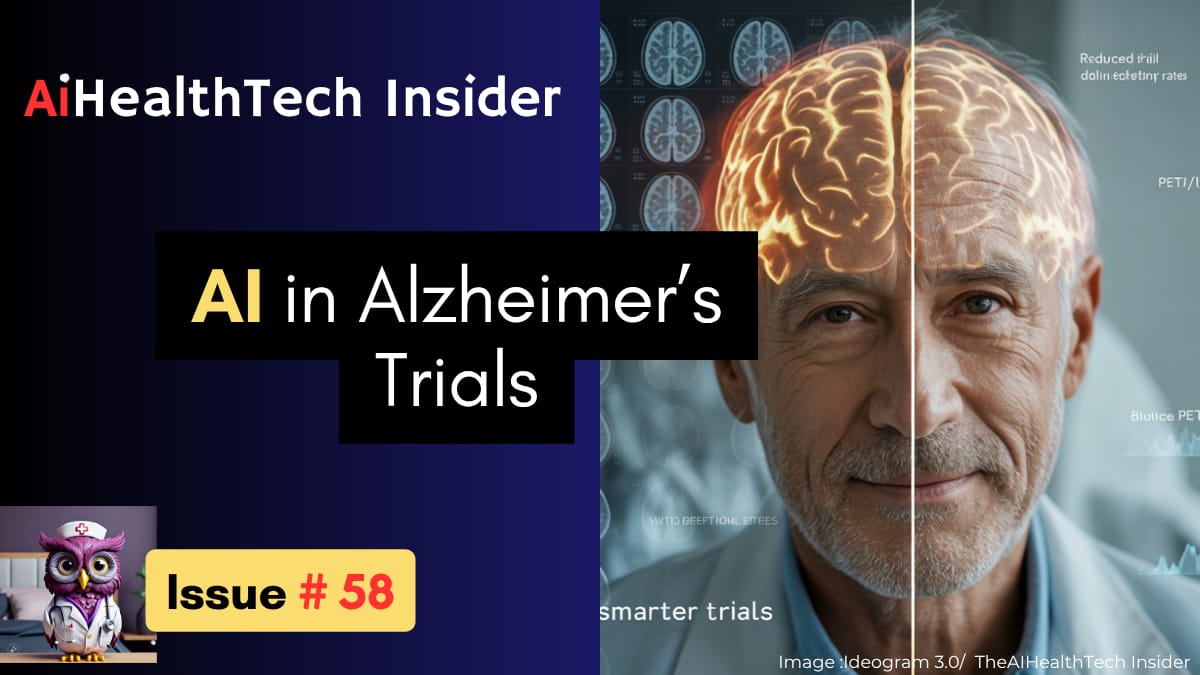
AIHealthTech Insider: Issue #58
July 21, 2025
In this edition, we spotlight game-changing innovations: from TumorSight Viz’s 3D MRI models transforming breast cancer surgery to EchoNext’s ECG-based detection of heart disease, and AI tools enhancing Alzheimer’s trials and H. pylori treatment. Plus, discover how NYU’s Nuclear Morphometric Pipeline is advancing regenerative medicine by tracking aging cells.
🎥 Watch & Listen with NotebookLM
This week’s issue comes with Video Overview powered by NotebookLM
AI Model Transforms Breast Cancer Surgery With 3D MRI Visualization
SimBioSys received its third FDA 510(k) clearance for TumorSight Viz 1.3, an AI-powered tool that converts standard 2D breast MRIs into detailed 3D models for preoperative planning. The platform offers superior lesion segmentation, same-day insights for patient consultations, and streamlined PACS-based image transfer.
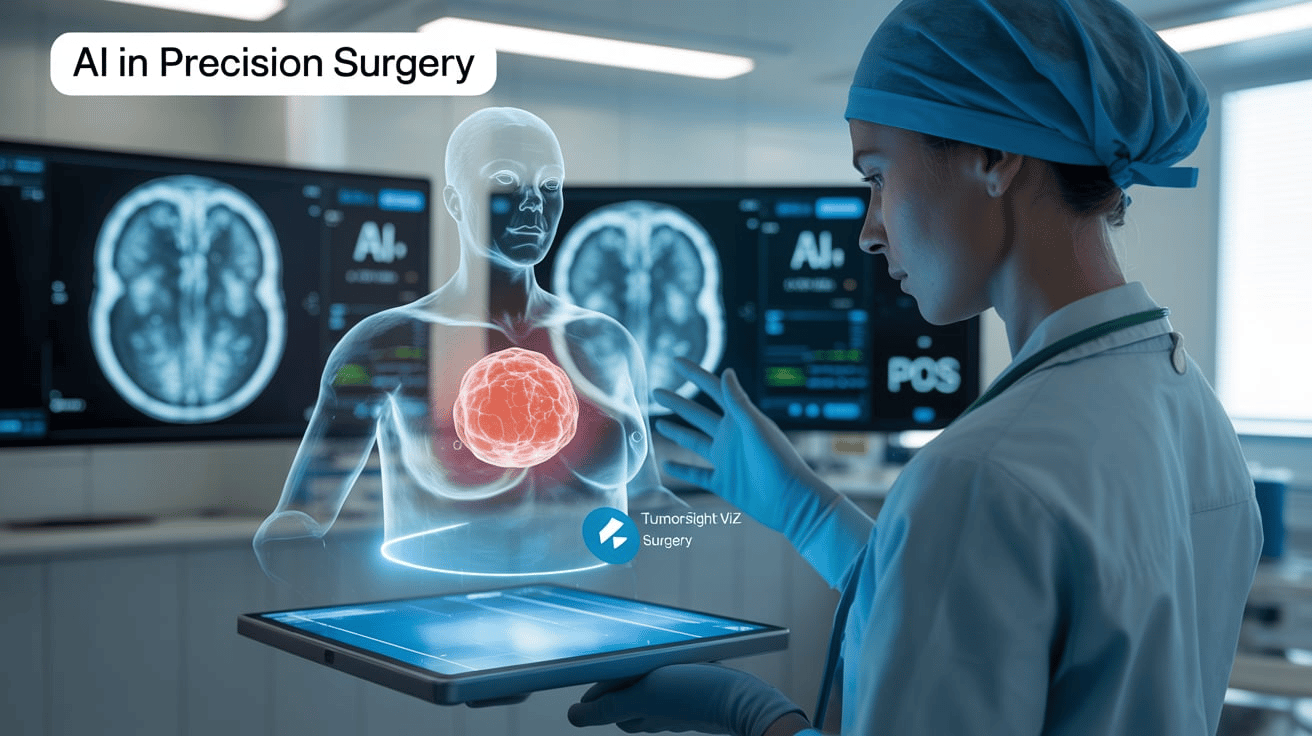
Source: Ideogram 3.0 /AIHealthTech Insider
TumorSight’s anatomical modeling helps reduce unnecessary tissue removal and re-excision rates, which still exceed 20%. Data from 1,600+ retrospective cases showed strong concordance with radiologist annotations and consistent tumor volume estimation—boosting confidence in margin and reconstruction decisions.
AI Model Detects Structural Heart Disease Using ECGs
Researchers have introduced EchoNext, a deep learning model trained on over 1 million ECG and echocardiogram records to detect structural heart disease (SHD). The model outperformed cardiologists in detecting multiple SHD types and showed high accuracy across hospitals, demographics, and care settings.

Source: Ideogram 3.0 /AIHealthTech Insider
EchoNext was validated in real-world clinical trials and publicly released with a large, annotated dataset, enabling broad research and early detection of underdiagnosed heart conditions at scale.
FROM THE SPONSOR
Find out why 1M+ professionals read Superhuman AI daily.
In 2 years you will be working for AI
Or an AI will be working for you
Here's how you can future-proof yourself:
Join the Superhuman AI newsletter – read by 1M+ people at top companies
Master AI tools, tutorials, and news in just 3 minutes a day
Become 10X more productive using AI
Join 1,000,000+ pros at companies like Google, Meta, and Amazon that are using AI to get ahead.
AI Model Enhances Alzheimer’s Drug Trial Success by Pinpointing Early-Stage Patients
Researchers developed a predictive AI tool that re-analyzed data from the previously failed AMARANTH trial for Alzheimer’s drug lanabecestat. The model, trained on multimodal data like MRI, PET scans, and genetics, precisely stratified patients into fast and slow cognitive decliners—revealing that early-stage patients receiving the drug had 46% slower cognitive decline compared to placebo.
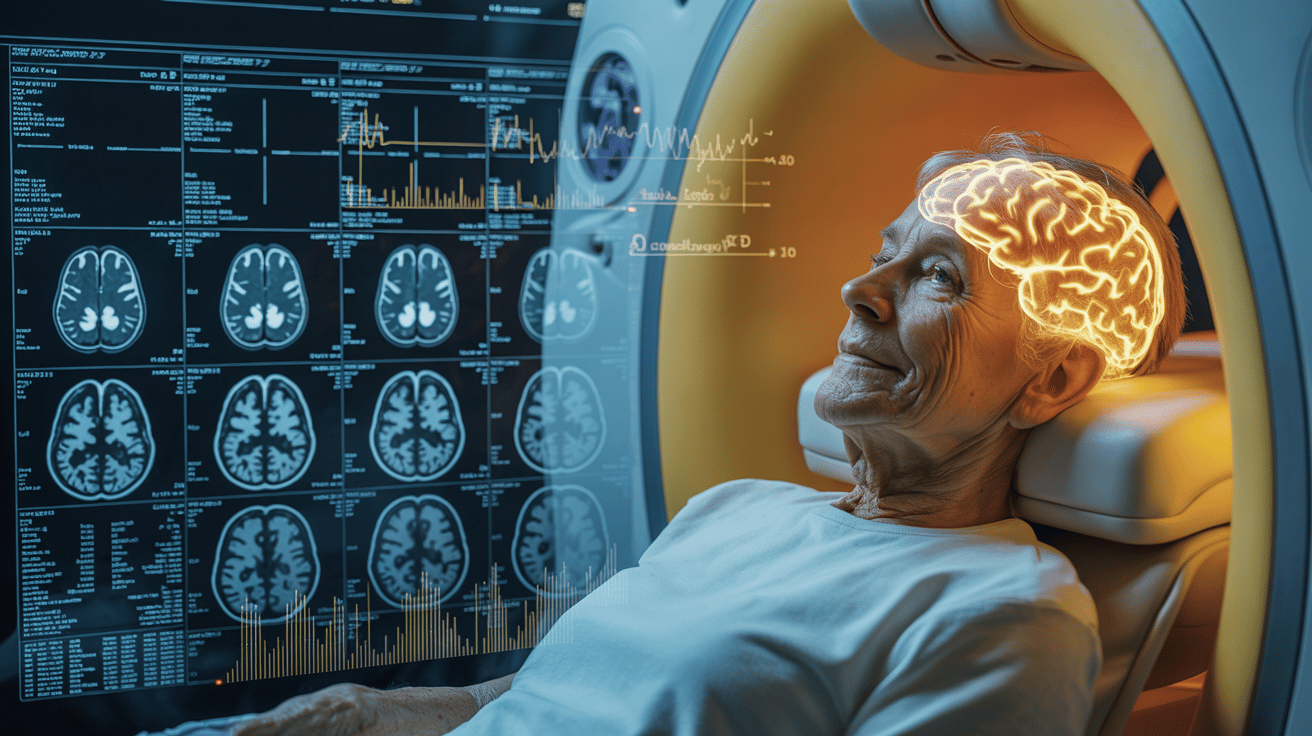
Source: Ideogram 3.0 /AIHealthTech Insider
The AI tool, called a Predictive Prognostic Model (PPM), helped uncover significant treatment benefits that were previously missed, suggesting many past trials may have failed due to poor patient stratification.
|
AI Clinician Improves H. pylori Eradication with Personalized Treatment Plans
Researchers developed a reinforcement learning-based AI model trained on 38,000+ patient records to personalize Helicobacter pylori treatment. The system, using patient variables like age, region, and antibiotic history, boosted eradication success from 88.1% to 94.1%.
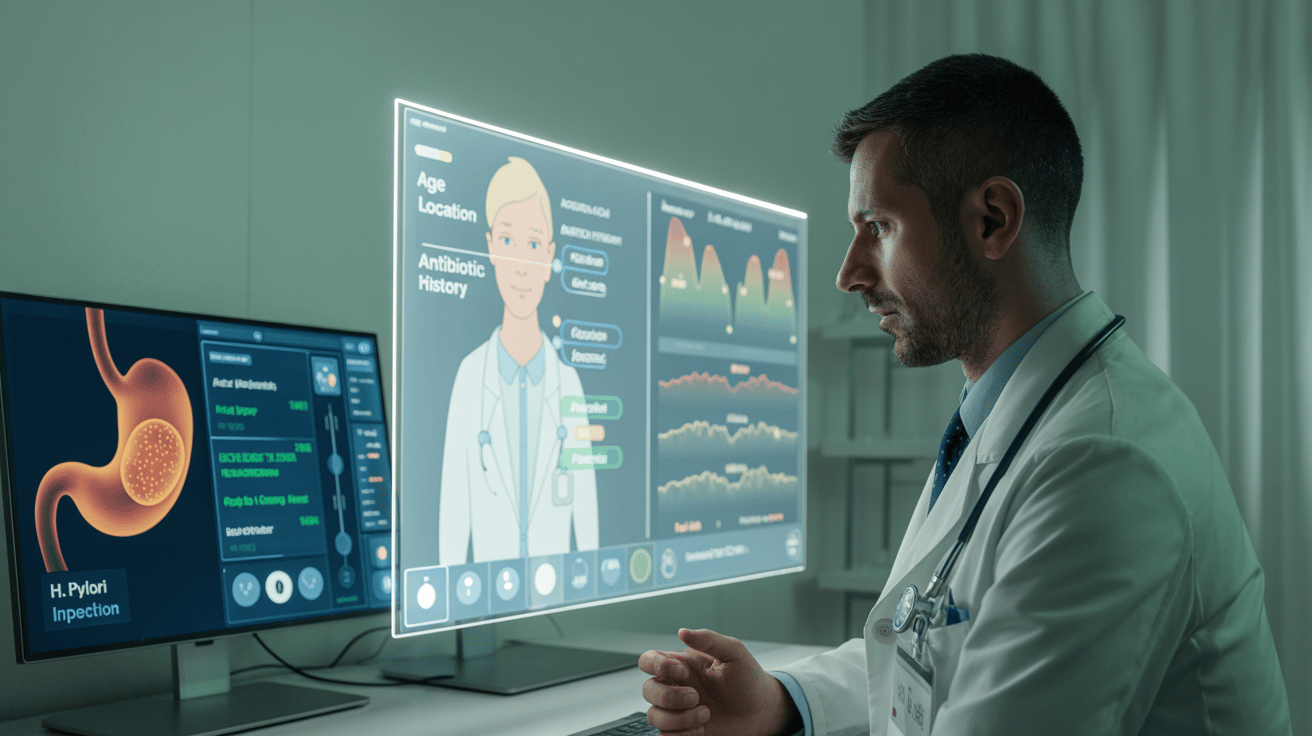
Source: Ideogram 3.0 /AIHealthTech Insider
The AI tool recommends therapies such as Pylera® and bismuth-based quadruple regimens based on individual profiles, outperforming standard clinician decisions. It excelled in external validation across diverse populations, showcasing AI's potential to optimize antibiotic strategies and reduce gastric cancer burden for more targeted infectious disease management.
AI Tool Scores Aging Cells to Advance Regenerative Medicine
NYU researchers developed a machine learning-based system that identifies and tracks aging or damaged cells using changes in nuclear shape and structure. The tool, called the Nuclear Morphometric Pipeline (NMP), assigns a “senescence score” based on physical traits like nuclear irregularity, reduced circularity, and DNA density.

Source: NYU Langone News
Tested on cells from mice of various ages and tissue types, the NMP accurately mapped the presence and repair timeline of senescent cells in injured muscles and osteoarthritic joints. Researchers say this breakthrough could fast-track senolytic drug testing and deepen insights into aging-related diseases.
🧠 AI vs. Human: Who Would You Trust More for Your Next Diagnosis?
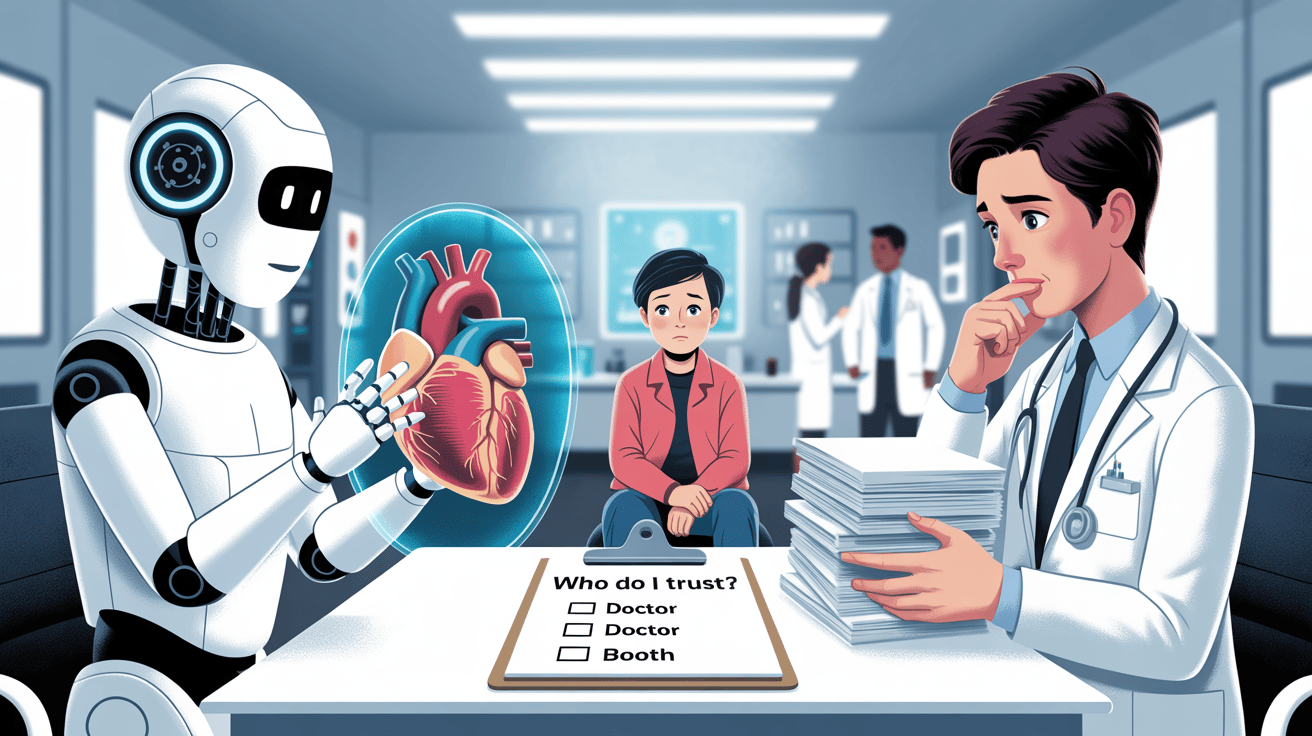
Source: Ideogram 3.0 /AIHealthTech Insider
Pick your healthcare hero: |
Stay Ahead: AI Healthcare News!
This is just a glimpse of the AI healthcare revolution. Subscribe for exclusive updates on medicine’s future!


